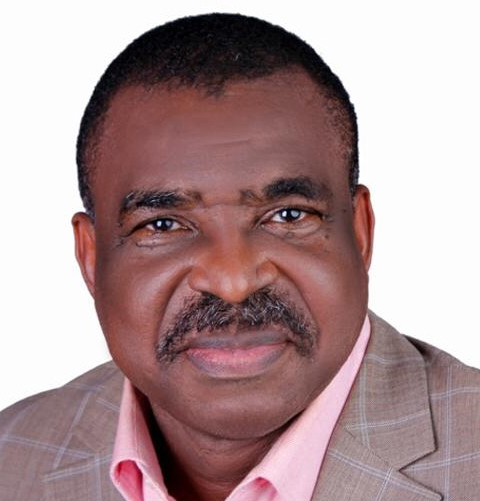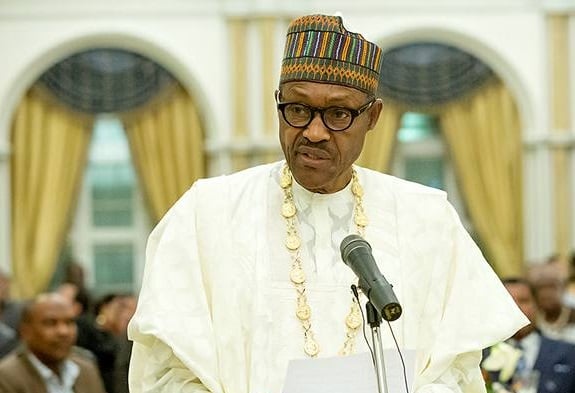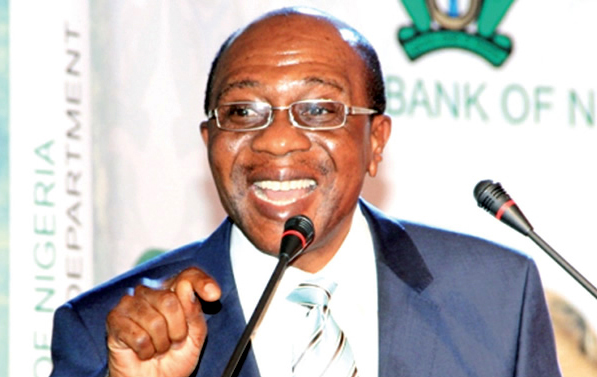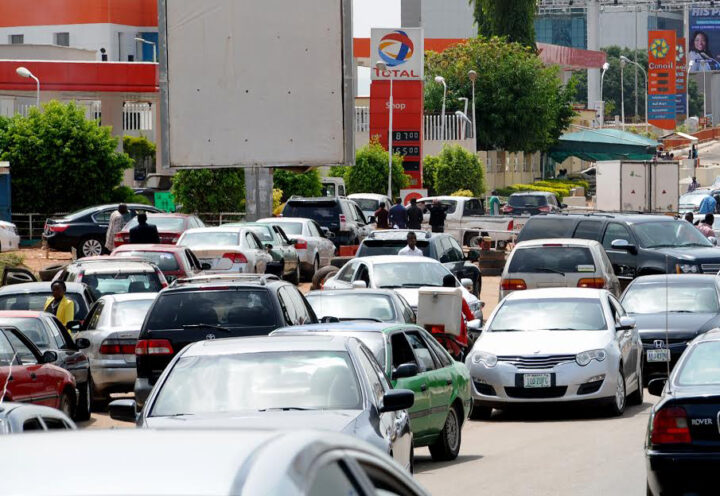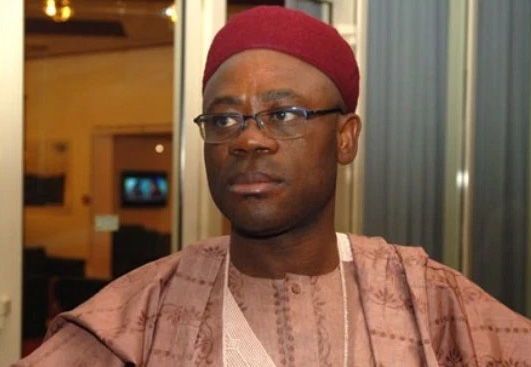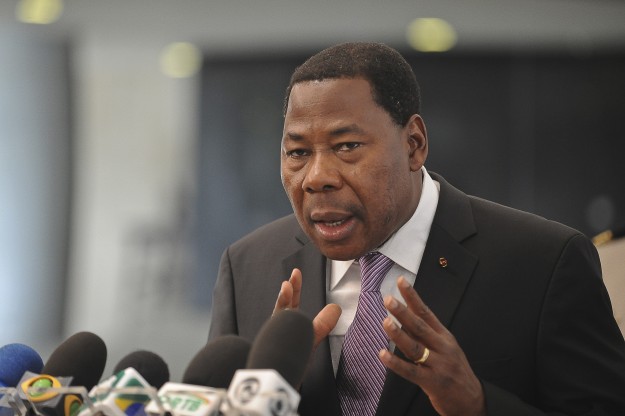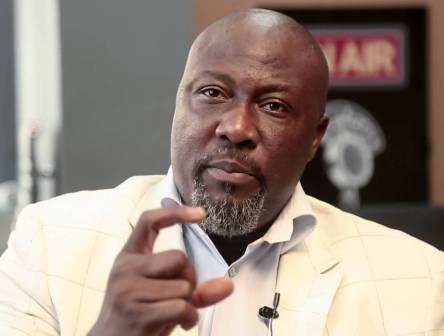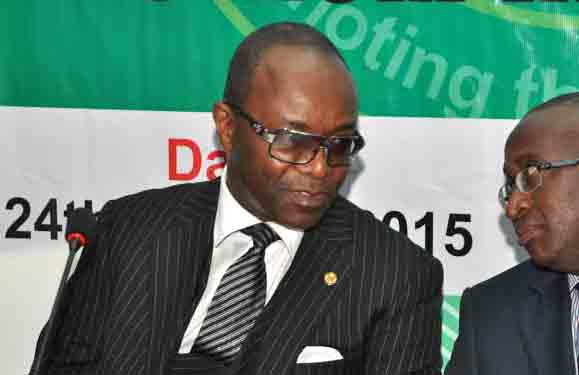It is human nature to choose the least option of resistance when faced with tough decisions.
That perhaps explains why govt’s reaction to current foreign exchange squeeze, arising from recent drastic drops in international oil price-Nigeria earns approximately 90% of foreign exchange, fx – is to ban allocation of fx for purchase of some items considered not essential.
The barring of 41 items such as tooth picks and candle wax from official allocation of fx is justified by the fact that such items could be sourced locally, especially since they are simple items requiring no extra ordinary skills or technology to produce .
However owing to govt’s policy of not being self reliant, instead preferring to source basic items from abroad, looking inwards was considered tedious when it could be more easily imported.
That laid back attitude of Nigerians towards local production is the reason the policy of import substitution introduced in Nigeria in the days of oil boom was not pursued with the vigor it deserves .The shoddy implementation of the policy institutionalized Nigeria’s penchant for foreign made goods and services,signaling the dearth of locally produced goods and services for local consumption.
Advertisement
Nothing demonstrates Nigeria’s penchant for foreign made goods better than the (in)famous container armada-ships laden with imported containers of assortment of goods into Nigeria-resulting in congestions in the sea ports in early 1980s under ex president , Shehu Shagari’s watch (1979-83).
In a recent article titled “In This Same Country”, Rueben Abati, the former chairman of Guardian newspaper editorial board, irrepressible columnist and ex-presidential spokesman, captured the mood of Nigeria and Nigerians during the so called good old days, which some people in nostalgia,fondly refer to as the golden age.
Abati’s article which is an eulogy of Nigeria’s hey days as a towering economic colossus,also contains reminisces of Nigeria of yore in comparison to now, and laments that the new generation-youths born less than 35 years ago- would never believe that Nigeria was ever so glorious.
Advertisement
Hear Abati ” The angst of this young generation is made worse when they are told that Nigeria was not always like this. In their late 20s to thirties, these children have only known Nigeria where fuel scarcity is a fact of daily life, and part of the mechanism of survival is to know how to draw fuel with your mouth, or negotiate black market purchase of fuel, while lugging jerry cans, either at the fuel station or a road side corner where you cannot be sure of the quality of fuel.These children have only known a country where the roads are bad,services are sub-standard, people are mean, criminality is rife, and electricity is available once in a blue moon”.
In his characteristic poetic manner, Abati contrasted Nigeria of today with what she used to be in gone-by days by recalling that “In this same country,the naira used to be at par with the pound and was for many years stronger than the dollar. So strong was the naira that many Nigerians,including the lower middle class could afford to travel to London on Friday evening,attend a party in London on Saturday ,attend a church service on Sunday, check out one or two mistresses in paid-for flats in different parts of London,and return early enough on Monday morning to be able to go to work. All that was no big deal. Everyone in London knew the Nigerians.They were the biggest spenders and they threw the best parties”.
Therein lies the problem of Nigeria because as opposed to being her glorious moment ,the picture of the ‘swinging 1970-80s’ which Abati painted in his illuminating piece,in my view is responsible for Nigeria’s socioeconomic challenges and the genesis of the paralysis that we are now suffering.
The assertion above is underscored by the fact that, it is the ostentatious attitude and reputation of the average Nigerian, infamous for bashfulness and wastefulness,that is the real cause of the economic malaise that has left Nigeria in tatters.
Advertisement
So rather than the picture of lascivious Nigerians gorging themselves with inanities of the west in the 1970s and 1980s making Nigeria glorious , it indeed reflects the inglorious era of Nigeria which our youths should be shielded from , so that the atrocious misbehavior of those days, do not rub off on them.
Had the generation of leaders that we had at that time prudently invested our new found oil wealth on productive ventures like education, healthcare and transport infrastructures, rather than wasting it on their primitive acquisitive inclinations, as reflected in their luxurious lifestyle of compulsive consumption, the youth generation that Abati referred to as not currently being proud of their green passports,because Nigeria has become a reference point for squander and squalor ,would probably be as proud to be Nigerians as Americans or the Chinese.
One thing is for sure, after reading Abati’s article, the youths would now know who to hold responsible for Nigeria’s socioeconomic stagnation after over 55 years of independence and 50 years of discovery of crude oil.
Contrary to Abati’s expectation,our youths would discover that when fortune smiled on Nigeria with oil wealth, following the discovery of the commodity in Oloibiri, Bayelsa state in 1956, resulting in the boom of the late 1970s, Nigeria derailed by going on a binge in London , Paris and New York,like a drunken sailor instead of investing wisely in productive ventures like infrastructure and sustainable institutions, like a smart Jew.
Advertisement
The scandalous level of profligacy and revelry of our leaders was such that no govt intent on making progress would have engaged in such debauchery and hope to leap from third to first world as Singapore did in about three decades.This was captured and documented in Lee Kuan Yew’s seminal book titled ” From Third World To First. The Singaporean Story:1965-2000″.
So my take away from Abati’s brilliant narrative on Nigeria’s good fortune and the squandering of the wealth ,is that Nigeria failed to make hay while the sun was shining. Instead,our leaders at that time had a grandiose impression of our nation.
Advertisement
The manifestation of the exaggerated impression is that the naira was made to exchange higher than the USA dollar and parallel to the British pound which was untrue as the value claimed was obviously not a correct reflection of reality.
What in the world was Nigeria producing apart from Bonny light crude oil that could have warranted the strength of the naira and her economy being stronger than that of the dollar and US economy which is home to Silicon Valley,Hollywood, Boeing airplanes and over one hundred other products and services in high demand across the world?How could Nigeria that was producing just Bonny light crude oil of similar quality to the UK Brent, have an economy that was at par with UK’s economy that produces Rolls Royce,Land Rover etc that are highly sought after globally ?
Advertisement
The truth is that if the naira were correctly valued, at perhaps N20-£1,(for the sake of this argument) the average Nigerian would not even afford to buy an airline ticket, how much less, jet off just like that to overseas locations to engage in conspicuous consumption of everything he could not possibly have the capacity and infrastructure to produce back home in Nigeria as Abati chronicled.
The point being made here is that an over valued currency motivates the citizens from that country to engage in compulsive procurement of products and services from a country whose currency is of less value.That is the underpinning principle for the devaluation policy of most export oriented countries all over the world who deliberately reduce the exchange rate of their currencies to attract the import of their products and services by other countries.
Advertisement
Two critical facts that Abati omitted in his fascinating account is that owing to Nigeria’s naira being over valued, Adisa Akinloye, the chairman of the then ruling political party, NPN had a champagne branded in his name ‘Akinloye Champagne’ reflecting his level of affluence and opulence.
If naira was correctly valued,he might not have afforded more than a few cartons of regular ones,how much less make an obscene splash of champagne branded in his name.
It was also a period when a highly influential and so called super permanent secretary, in the federal civil service lost a fortune, in a suit case to a call girl, in a London hotel.
Obviously,Nigeria was awash with cash so the largesse was also extended to the youths. While the annual school fees of a university student in the Uk was £350 which was equivalent to Nigeria’s pounds ,an average student in secondary school in Nigeria was receiving a handsome N500 bursary allowance annually. This was £150 more than the school fees of university students in England which is probably why an average Nigerian student could have such significant amount in his breast pocket to spend as he or she wished in London or any other overseas location.
As if validating Abati’s piece depicting the gluttony of Nigerian leaders , in a recent article by the influential newspaper, Financial Times, FT, of London titled “Nigeria’s Govt:Living The High Life”,it was alleged that between 2012 and 2014, Nigerian govt spent a princely sum of N248b or $1.25b on travels. Confirming that the squandering of wealth continues till date in Nigeria, the FT further alleged that $6.5b was spent by wealthy Nigerians on private jets between 2007 and 2012.
That is about $2b more than the $4.5b that federal govt is planning to borrow from foreign sources to fund the 2016 budget.
FT further reports that the presidential fleet of 11 airplanes, acquired by the previous regimes , cost the presidency about N5.8b to maintain in the first six months of this administration and some states owned and operated private jets that cost as much as $50m to acquire, and $1.8 is estimated as cost of maintenance annually.
The globally influential newspaper aver that Nigerian state governors still fly private jets even as most of them are owing workers salaries in some cases for up to six months in arrears.
Evidently ,Nigeria’s problem is a question of failed leadership of an acquiesced and unpatriotic citizens when compared to progressive policies that a legendary leader like Lee Kuan Yew of Singapore introduced to transform the very focused and driven members of the Singaporean society when leadership was thrust on him.
To put things in better perspectives, let’s compare leadership,policies,
Beginning with Dubai, UAE($399b GDP): Sheik Rashid, who reigned between 1958 and 1990 is the architect of the phenomenal development, called Dubai. He dared to plan on reinventing a quaint pearl prospecting precinct into a trade and tourist haven. About three decades after what initially seemed like a brain wave, the dream has been realized as Dubai has now effectively become the new Paris in the Middle East-replacing Beirut which lost her glitters as a result of terrorism related challenges. Subsequently , most of the traditional tourists who used to flock to Egypt are also diverting to Dubai for the same reason they are shifting from Beirut.
How did a tiny Dubai ,with a population of 9.3 million people (entire UAE) , attain such lofty heights? Clearly it is through visionary leadership that facilitated the provision of enabling environment via progressive tourism and trade policies;robust infrastructure and watertight security that has kept terrorists out of the emirate which although is in the terrorism ravaged Middle East, but has remained ensconced.
With sheikh Maktoum taking over from his late father Rashid in 1990 and staying the course till he too passed away in 2006, the tallest building in the world, Burj Khalifa, housing the famous Armani Hotel is in Dubai and sheik Mohamed Bin Rashid Al Maktoum, who succeeded, sheik Maktoum has like his progenitors continued to break new grounds.
Dubai owned airline, Emirates boasts of one of the largest fleets of aircrafts in the world and flies into countless destinations world wide ;entry visa into Dubai is one of the most hassle free in the world, yet there is no unwanted immigrants issues there;properties can be acquired and disposed in less than 100 hours with all paper work completed in a jiffy and Dubai air and sea ports are some of the largest in the world. Dubai also preeminently ranks as the location with the biggest malls in the world, thanks to the reigning king, fondly referred to as sheik ‘Mo, who took the reigns in 2006 and kept the faith.
The net result and effect of all the above deliberate development strides is that Dubai has become an haven to traders and oasis to tourists from all over the world.
As simplistic as the above listed activities that enabled Dubai’s lofty accomplishment appear, there are lots of lessons for Nigerian leaders to learn from sheik Rashid who did not have western education but had the vision of leveraging the wealth from oil rich Abu Dhabi, the capital of the Emirates,into the development of Dubai into a global trading and tourism hub.
With the development and convergence of gigantic sea and airports, as well as airlines, hotels and real estate, Dubai is now a combination of Paris, London and Miami in one location making her a jewel of the Middle East.
Compare that to Nigeria that squandered her oil wealth in consumption oriented jamborees like FESTAC in 1977 and the puffing up the naira artificially to be at par with the British pound and thus encouraging spending sprees in Europe and USA, and you can easily discern how unwise our leaders have been and the reason we are still mired in a nasty poverty trap.
On China, it took the far sightedness of Deng Xiaoping , the forward thinking Chinese leader to pull the Far East country out of the shackles of chairman Mao Zedong’s cultural revolution policy of building iron curtains around China and which rendered her economy and people insular and archaic.
As a farsighted leader,Deng Xiaoping who ruled from 1979 to 1997, abandoned Mao’s communist doctrines and incorporated elements of free enterprise system into the economy.He was famously quoted as saying ” poverty is not socialism. To be rich is glorious”. This is why he stock to socialism but implemented changes in agriculture and industry.
Under the old cultural revolution, China had great potentials which was largely unharnessed until Xiaoping opened up China to foreign investment and global markets.While implementing the ‘great leap’ policy,as part of the Cultural Revolution,Chinese people had been mandated to convert every available metal into products.The policy failed and an estimated three hundred million 300m were believed to have died as a result of famine induced hunger and starvation until, the country opened up to international trade- allowing the inflow of badly needed capital to grow the economy.
After allowing capitalist free market enterprise principles driven economies of Hong Kong leased to Britain and Taiwan,under the management of USA to sift into her economy, she was ready for the world.
To address energy shortage that constrained the Great Leap, China embarked on the construction of the three gorges dam,600 feet deep, one and half miles in width and covering about 400 miles, to the displeasure of Western environmentalists who reckon that the dam would displace about one million,two hundred thousand,1,200,000 families in a region that is home to estimated 30 million people.
Needless to point out that it is to the credit of the astute leadership skills and rugged determination of Deng Xiaoping that the three gorges dam which the West was against was completed and thus enabled her generate enough electricity- 9th of Chinese needs and up to what 18 nuclear plants would generate. That bold and monumental initiative would make China the world’s factory for the manufacture of any and everything today.
Assuming, Xiaoping buckled under the pressure of the West not to build the three gorges dam, would China have grown so exponentially?
Compare the Chinese situation decades ago, when Western powers tried dissuading her from building the three gorges dam;how the leaders spurned the advise viz-a-viz the current pressure on Nigeria to devalue the naira,then you can discern how gutsy the Chinese leader Xiaoping was.
With a robust local industrial capacity,owing to steady electricity power,vast organizational structure derived from long practice of rigid communism system and enormous potential for agricultural development, modest but modern road infrastructure development,plus badly needed foreign investment inflow, Xiaoping made up with a former foe but industrious Japan; former communist ally, Russia and Western super powers;the USA and Uk.
Thereafter, China wisely joined the world trade organization, WTO in 2001 and her economy became the fastest growing in the world and the rest is now history.
Fifteen years after engaging with the rest of the works through WTO , with a ten trillion dollar ($10t) size economy, China is the second largest economy by GDP value in the world.
It is being projected that USA’s seventeen trillion ($17t) GDP may be be overtaken by China in 2050.
That is not impossible with Alibaba- massive online trading platform, competing with USA Amazon,Huawei-giant technology company challenging Microsoft and Xiaomi-smart phone giving Apple and her iPhone and other hitek products, a run for their money. So the projection of China trumping USA economy in about thirty, 30 years may not be a pie dream, as some ‘Doubting Thomas’ are wont to believe.
Let’s now look at the third model- Republic of Georgia($36.4b GDP).
This is the poster child of development often vaunted by the West as represented by the IMF and World bank.
Georgia is a small country with a population of less than five million, 5m people that was hived off defunct United Soviet socialist republic, USSR.
The country came under Soviet rule in 1921 but seceded in 1991 under the leadership of Eduard Shevardnadze.
It’s noteworthy that unlike the development paths taken by Dubai, UAE and China, the IMF and world bank are driving the development in Georgia and this is remarkable in a lot of ways which we will get to later.
When market driven economic policies were embraced following structural reforms, pushed by the aforementioned multilateral agencies, the authorities deliberately posted young men and women to senior govt posts to drive the reforms as was the case in Singapore, led by Lee Kuan Yew.
Under the IMF and world bank influence,budgetary and tax reforms were introduced, just as support for small and medium scale enterprises was boosted and attempts were made to curtail the influence of the parallel market which was about 50% of the Georgian economy.
Like Nigeria, low tax collection and delay in payment of salaries and pensions are identified drags to the economy but the IMF/World bank reforms resulted in reduction in budget deficit etc.
Of course,the improvements did not come without the price of the devaluation of the Lari-Georgian currency in 1998.
This happened despite the fact that Georgia is a country that the Western powers are projecting as a success story in terms of transition to capitalist and market forces driven economy as opposed to the communist/socialist centrally controlled economy from which she emerged in 1991.
The consequence of devaluation of the Lari was liquidity challenge in the banking sector similar to the situation currently being witnessed in Nigeria. Resort to borrowing from abroad was Georgia’s fall back position.It was easy for European and American banks to lend money to Georgian banks because it was being propped up as a beacon of hope and model to other east European countries under the yoke of Russian socialism.Can Nigeria benefit from such Western powers largesse, if she devalues and suffered liquidity crunch? Although, former Nigerian president, Olusegun Obasanjo was able to secure a debt write off at the nascent stage of our democracy, things have changed since that time and my sense is that such commitment would be difficult to extract from Western creditors now, especially in the light of the falling price of oil/gas which Nigeria relies on for fx income.
Whereas foreign direct investment, FDI reached $224m in 1998,the momentum has not been sustained as no ‘major’ oil/gas firm has signed any agreement with Georgia till date and despite the devaluation of the Lari,export has remained depressed and that is being attributed to the dismal performance of the global economy.
Diaspora remittances especially of Georgians working in Russian is about 9% of GDP and has surpassed foreign direct investment, FDI.
Clearly the pattern of development of the Republic of Georgia is in stark contrast with that of Dubai and China especially because that country’s development has been led by the Bretton Wood institutions and that’s why neither the current president nor the prime minister are mentioned in the development narrative.Unlike Dubai and Chinese leaders,they had no leadership initiative of their own,except to execute IMF/Worldbank directives.
If Nigeria should buckle under the pressure of the same multi lateral agencies that have been driving the Georgian growth, our country could go the way of Georgia. Given the not so excellent accomplishments recorded there despite the extra ordinary NATO and European banks support , ( forget the hype about superlative accomplishments ) and considering that Georgia is only about the size of Delta state, which is about 4.9m in population,it would not be an optimal decision for Nigeria to model her growth and development after the tiny Eastern European country of Georgia.
In the light of the foregoing, the preferred model for development for Nigeria, in my view, would be a combination of the Dubai,UAE and Chinese models that have been proven to be sustainable and resilient.
Dubai formulated futuristic policies and had the tenacity of purpose via her visionary and purpose driven leaders like, sheik Rashid, his son Maktum and his brother Mohamed to vigorously pursue the initiatives until the dream became reality. By the same token, China resolved to grow her local muscle to compete by being insular and only unleashed her power after organizational capacity had become deeply entrenched owing to her erstwhile communist structures before venturing out to compete internationally.
Deng Xiaoping was purged from office thrice-like Buhari who is now reincarnating- before he literarily reinvented China.
China being the most populous country in the world and Nigeria having the largest number of people in Africa, share common characteristics, so Nigeria would be better of emulating China in my reckoning.
The following are five,5 nuggets of Chinese-type development wisdom pointing to how Buhari can put Nigeria back on track:
Firstly, China’s dogged determination to solve her electricity power instability challenge as reflected in her construction of the three gorges dam is a good candidate for emulation by Nigerian leaders.
President Buhari should take ramping up power supply more seriously. Lumping power up in the same ministry as works and housing, does not create the impression that overcoming power shortages and its attendant consequence on industrialization is a priority by this govt.Separate power from works and housing, appoint another minister to supervise the left over of works and housing and free up the dynamic, high-achieving ,former governor of lagos state, Babatunde Fashola with the power ministry.
The urgency to over come electricity challenge can’t be overemphasized but suffice it to say that it is the most critical catalyst for industrial development as evidenced by Chinese experience.
Secondly, a combination of Import substitution policy introduced long ago but shabbily implemented and a new policy of Backward integration in agriculture should be pursued as a matter of urgency.
Already, the likes of Obasanjo and transcorp farms, as well as Orleans and Indorama farms are investing in cultivation and processing of some food items like poultry,rice and fruit juice across Nigeria, from Ogun, Delta to Benue states and environ. Likewise,Aliko Dangote, the richest man in Africa has pledged to join the farming revolution by growing rice and sugar in the northern parts of Nigeria and so also has billionaire, Hosa Okunbo ‘thrown his hat into the ring’ of the new farmers club in Edo state region .
As a further testimony to the capacity of Nigerians to deliver when challenged,Erisco Bumpet is already producing tinned tomatoe purée locally in lagos and Dangote is said to have just commissioned one in Kano.
With more hands being on board to till the soil, food import ticket that is second only to fuel imports-$1.8, would be reduced very quickly.
Thirdly,petrol or premium motor spirit, PMS which is believed to consume the lion share of about N1.24 trillion of the fx outflow in 2015 should be tackled head-on.
Fortunately, president Buhari is familiar with building refineries having been the one that built at least two major refineries in the Nigeria during his tenure as minister of petroleum resources and military head-of-state in the late 1970s and 80s.
Along with impressive efforts being made by GMD of NNPC/Minister of state for petroleum, lbe Kachikwu, president Buhari should provide incentives (offer they can’t resist) for oil majors to invest in refineries as precondition for tax breaks and other privileges that they often seek.
Obviously, oil majors have the clout to make it happen faster than any other party because of their foot prints and experience garnered in other climes.
To that end, renewal of leases and award of new ones should be tied to establishment of refineries.That is the wish of Nigerians, over and above the academic scholarships and book quizzes/contests being organized by major oil companies as corporate social responsibility, CSR initiatives.
The National Assembly, NASS should take note of such realities while reviewing the Petroleum Industry Bill, PIB which they have promised to bring to the front burner for deliberations next week. After they goofed with their failed attempt to pass the social media gagging bill and the ‘shooting’ down of the bill that would strengthen women rights plus their lavish expenditure on luxury jeeps instead of opting for cars assembled in Nigeria to boost employment at home, our congressmen now have the opportunity to demonstrate that they truly love Nigeria.
Passing the PIB without partisanship being a clog is that opportunity to redeem their sagging image.
The new licenses granted for the establishment of modular refineries is good and so also is Aliko Dangote’s petrochemical plant and refinery under construction in lekki axis of lagos state.
Having revolutionized cement production in Nigeria to the extent that Nigeria is now a leader in the production of the commodity in Africa and net exporter of the product ,Dangote has demonstrated capacity so he can be assumed to have the capacity to deliver on local production of oil/gas in Nigeria.
Fourthly, Egypt($307b GDP) which has a population of about eighty million,80m is the third largest economy in Africa, by GDP value, next to South Africa which is ($350b GDP), and number two, 2, with Nigeria at ($530b), being number one, 1.
Practically all the consumables in Egypt from tennis shoes, jeans pants to pampers baby napkins are locally produced by transnational corporations who via Egyptian pragmatic trade policies, are compelled to establish factories in Egypt.
That was only possible because Egypt enjoys stable electricity supply and fairly good infrastructure conductive for manufacturing hence my suggestion that a state of emergency should be declared for stable electricity supply in Nigeria. Similar conditions apply in South Africa with a population of under fifty million,50m people and better electricity and other relevant infrastructure than Nigeria, hence BMW and other vehicle assembly plants are located in South Africa.
Even General Electric, GE of USA opened its first factory outside of USA, in South Africa.
The import of introducing policies that encourage multinational corporations to establish factories for the local production of their goods, is massive job creation which would invariably trigger and energize an otherwise dormant middle class with the needed purchasing power to sustain the businesses.
Fifthly,on the search for home grown healthcare to conserve fx which mr president recently acknowledged as consuming about one billion dollars annually, why can’t we set up a Healthcare City in Abuja like they have done in Dubai? The facility in Dubai boasts of having catered to over 1.2 million patients since inception.
Recently, a group of medical practitioners in the diaspora came together to establish a medical facility of international standard in lagos.They faced enormous challenges trying to set it up,but eventually they did it anyway. This confirms that Nigerian can replicate Dubai Healthcare City here, if the right incentives are provided.It would particularly be a potential health tourism magnet especially from African patients .The National Hospital, Abuja which was a good initiative, has failed because it is owned and operated by govt.
Furthermore, to save fx and discourage exodus of Nigerians into learning institutions abroad, which is yet to receive the attention of the authorities as mr president’s comment at the recent economic retreat confirms, there are reputable educational institutions in Europe and north America that can be encouraged to establish campuses here in partnership with local investors.
Atiku Abubakar, former Vice President of Nigeria,successfully collaborated with American university in setting up one in Yola, Adamawa state, so he has proven that it is doable.
The initiative of partnership with Western universities would lead to reversal of the trend whereby Nigerian students are now sojourning not only in advanced societies of Europe and North America, but also in Ghana and Benin Republic higher institutions.
Right now,Ghanaian universities are partnering UK counterparts to run first and second degree programs and they are even marketing the initiative to Nigerians by advertising in Nigerian media platforms.
We may have a lesson or two to learn from Ghana where unlike Nigeria, their academic year is never interrupted, hence the flocking of Nigerians to institutions of learning over there.
I could go on and on but obviously, there is not enough space for such in a newspaper article,except it is a seminar paper.
In my opinion, international trade is only beneficial as long as there is local input like establishing local assembly plants for local content hence my proposal for the reenactment or replication of Egyptian model especially for a country like Nigeria and a continent like Africa where we have no comparative advantage in any product or service except agriculture.
For instance, the USA has the capacity to produce her wine in California but WTO believes France has comparative advantage hence you hear of French wine all over the world ,but in agriculture, where Africa has comparative advantage, the West subsidizes farming thereby blunting Africa’s edge by dumping cheap imports like poultry etc on Africa.
Since we don’t have the capacity to compete against the industrialized society, we are left with the short end of the stick.
That’s not the case with Western countries who are on equal pedestal, and squabble all the time by accusing each other of dumping steel in their respective countries and arbitrarily devaluing their currencies to boost export.
These disagreements sometimes lead to trade wars, but Nigeria or indeed Africa don’t have the ‘liver’ (to borrow local lingo) to bargain or engage in the trade wars.
The reality is that when we open up our markets to compete with cheap imports from countries like China,hitherto thriving industries like the textile mills would die.
That’s why kaduna that used to be a hub for textile manufacturing,feeding on cotton farms that are endemic in neighboring Funtua, katsina state, is now a shadow of its self as the Industry is now effectively dead.Adams Oshiomhole, Edo state governor and a veteran of the textile industry would testify to that.
In international trade, if you are weak in policy and negotiations, you will be bullied and everything will be forced down your throat.
So the West will rattle Nigeria, but it’s left to her to demonstrate strength and leadership by resisting the pressure,however Nigeria must have alternative viable plans and counter strategies to starve off the challenge and disappointingly our country seems to have non in existence now.
To appreciate what is driving the devalue or not devalue debate, one needs to have a conversation with a Nigerian who has worked and retired from UAC, SHELL, Chevron or Mobil for 30-40 years, as a director to realize how fiercely loyal they can be to the ethos of the company or the company’s country of origin like UAC and the Queen of England.This stems from the fact that after working for so long in those companies and benefiting from training by the firm all their working lives, they don’t have any choice than to be beholden to such companies and be extremely loyal.
So also is the situation with a Nigerian that has worked in the civil service or any of the arms of the military for similar length of time and enjoyed scholarships and sundry trainings on the job before retiring as a permanent secretary or a military general.
Such people are also fiercely loyal to Nigeria.
Loyalty to a company in my view is akin to patriotism to a country.
And an individual is loyal or patriotic if or when one feels indebted.
That is the difference between those calling for devaluation and those against it.
The debate has, from my point of view, been more of emotional argument than an economic one.
This is because, depending on one’s economic point of view or school of thought like the Keynesian/monetarists/public choice theory,there is really no good or bad option -devalue or not- that would not lead to the rescue of the economy, but tenacity of purpose, as reflected in the dogged determination of the leaders/champions of the vision is the most crucial ingredient to success.The Dubai and Chinese case studies earlier catalogued attest to that fact.
Renown economists like Paul krugman , Joseph Stieglitz , Milton Friedman, James M.Buchanan etc belong to the different schools of thought aforementioned but their ultimate objective is how to create value and progress and more often that not they succeed in their different methods.
Therefore, it is left to a nation’s economic management team to design or develop a model or pathway to economic revival or growth, and one thing for sure is that no channel out of economic challenge is painless, a tea party or a walk-in-the-park.
Those calling for devaluation are satiated with Western doctrines like the retirees from UAC, Mobil etc while those resisting devaluation are dye-in-the-wool patriots like retired civil servants and army generals as illustrated in my earlier analogy.
President Buhari represents the fiercely patriotic and therefore against devaluation while the immediate past governor of the CBN now emir of Kano,Sanusi lamido Sanusi, who is calling for devaluation,represents those whose DNA are deeply ingrained with Western ethos.
Nevertheless, what l can affirm is that despite the divergent points of view on whether to devalue or not devalue,the overarching interest and motivation on both sides, which is to strengthen Nigerian economy,can not be denied.
To achieve a profund and far reaching result of putting Nigerian economy on even keel, the APC led federal govt may wish to seek the expertise of economics experts like Joseph Stieglitz and Paul Krugman who are Nobel laureates in economics. These towering personalities in economics currently advise major countries like Japan, Greece etc.
If APC could engage David Axelrod -the USA president Obama campaign strategist to help her create and execute the strategy that enabled her defeat the former ruling party, PDP at the March 28th, 2015 presidential polls, there is no reason president Buhari should not avail Nigeria of the skills of the renown economists, like Stiglitz and Krugman earlier mentioned to help us pull Nigerian economy out of the present economic doldrums that she is now grappling with.
Mr president has made solving the monumental problem of corruption in Nigeria his priority which is good, but while fighting corruption, searching for the best ways and means of moving Nigeria forward faster , such as the ones suggested above,must go on paripasu.
Onyibe, a development strategist and futurologist who is a former commissioner in Delta state govt and alumnus of Fletcher school of Law and Diplomacy, sent this piece from Accra, Ghana.
Views expressed by contributors are strictly personal and not of TheCable.
Add a comment
